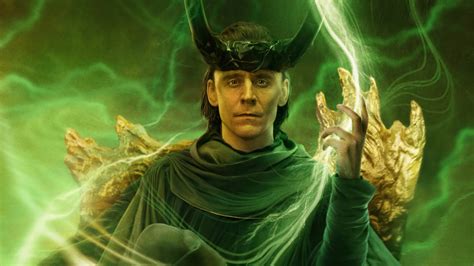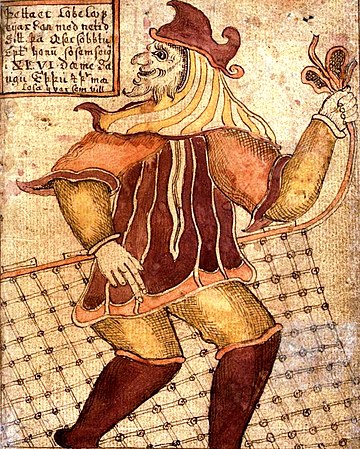What is your favorite mythological figure (of ancient religions only)?
Eldad HaDaani (Eldad the Daanite). Not a major figure but he was like a classic bard in D&D. Told of his travels - which are referenced in songs made out of the literature talking about him. Said he had encountered a river that nobody knew where it was and is considered like lore (the Sambatyon). Anyway I always felt like it was a cool story. I never read all that much of him but growing up as Orthodox Jewish he’s mentioned in some things we sang and I always equated him as being a perfect Bard for a D&as campaign.
Big fan of The Left Hand Path. It is many things to many people but my understanding is that within the left hand path comes the notion that growth is catalyzed by conflict. If all things align with your morals and situations you have reached stasis. Conflict challenges the self to overcome and grow. Thus I am able to look at a world full of conflict as full of opportunities to grow, and able to understsnd the fact that conflict will always eventually arise as the fact that we will always be able to grow.
Perun. Kinda like Thor, but without whoring for Marvel.
Axe is cooler than hammer as well.
The Demiurge. Not that I like the Demiurge itself. But explaining the human condition as being a product of bad design appeals to me. I don’t believe the myth and I’m not religious. But as far as myths go, that one is my fave.
Cybele, Mithras, Harpocrates
Ninshubur. Dude is badass.
Ezekiel.
That guy want on a peyote trip in the middle of the desert and literally saw God.
I think Odyssey is a pretty cool guy. Eh trojans hores and doesnt afraid of anything.
Could you mean the book by Homer the poet, The Odyssey?
Well the Odyssey’s MC and title character is Odysseus.
The Shintō sun goddess Amaterasu is quite interesting. As is the whole Shintō origin story.
https://en.wikipedia.org/wiki/The_Wicked_%2B_The_Divine
the tl, dr is that every 90 years a dozen young people become reincarnations of various ancient gods from all over the world. Amaterasu is one of these.
Fun book and worth a look
Odin is cool af.
Diomedes, he got eaten by horses, which sounds metal as fuck.
Prometheus
It might seem like a subjective question, but the answer is objectively Prometheus and his replacements in other cultures.
Someone that went against God(s) to give humans knowledge that at the time was considered magical
Like, we talk about how much tech changes stuff today, but fucking fire?
Imagine being alive when your group of humans mastered fire. That shit would have been fucking mind breaking.
He is the one that have humans fire and was chained to the rock for all time while having his guts eaten by a bird each day which healed each night?
Yep.
The OG Light Bringer sentenced to eternal damnation for providing knowledge to humans.
And yes, I’m still salty Christians made him the bad guy.
Can you explain further? I don’t recall that Prometheus was mentioned at all by that particular religious group.
Being alive in the time fire was invented - well it’s hard to say since it was Homo Erectus who did so, some millions of years ago. Modern humans are very different from good ole’ Erectus, and we think differently, so… the tale of Prometheus is a good one for sure, but it’s also much younger than the actual history of human control over fire.
Source: https://study.com/academy/lesson/how-did-stone-age-man-make-fire-discovery-importance-facts.html

inb4: the God of the Abrahamic religions hurr durr
But is it Yhwh or El?
There are numerous names and in fact, there are sources which I cannot recall, that said his full name was like 24 letters long or something like that. Not surprising since he’s a hodgepodge of lots of prior mythos and was probably written of and modified over hundreds of years.
Ah now that’s a trick question, because the Abrahamic god is in fact an amalgam of both, which is why he’s so derangedly bipolar in the Old Testament!
Yeah. I think historically it is interesting, because the Hebrew Elohim of Genesis is in the plural, and there is evidence that followers of El believed him to be one deity in a pantheon. In that sense, Elohim and the associated creation myths have their roots in a polytheistic religion.
Yhwh was more likely a figure from a belief system of a different region which ended up co-opting the earlier stories. I know your comment was tongue-in-cheek, but I think it is actually plausible that things like the Catholic Holy Trinity have roots in El and Yhwh technically being different figures.
Interestingly enough, when Eelohim is used to refer to the Hebrew God in the bible, it takes singular verbs, while it take plural when referring to the gods of the nations surrounding them.
I wonder how much of that has to do with semantic drift on Elohim, i.e. by the time the oldest extant manuscripts were written, the figure was already considered singular despite retaining the noun plural morphology. The implication there would be that earlier (now lost) manuscripts may have had plural verb agreement for Elohim, or maybe simpler / more plausible, there was a time in the oral tradition where Elohim was still considered a plural figure and would have naturally gotten plural verbs.
I think the fact that the plural morphology exists on the noun at all suggests at least that the figure started as a collective.
Edit: probably also worth a mention that portions of Genesis (e.g. Garden of Eden) mirror portions of the Epic of Gilgamesh, a story which is overtly polytheistic.
Yeah, that asshole is nobody’s favorite.
Any trickster god.
Hail Eris!
I’m going to drop a low key Loki here
No, you aren’t
Low Key being Loki flew past me for most of American Gods.
Nobody’s human

Why are you posting a picture of Dr. Strange?

Why are you posting a picture of Idris Elba?













